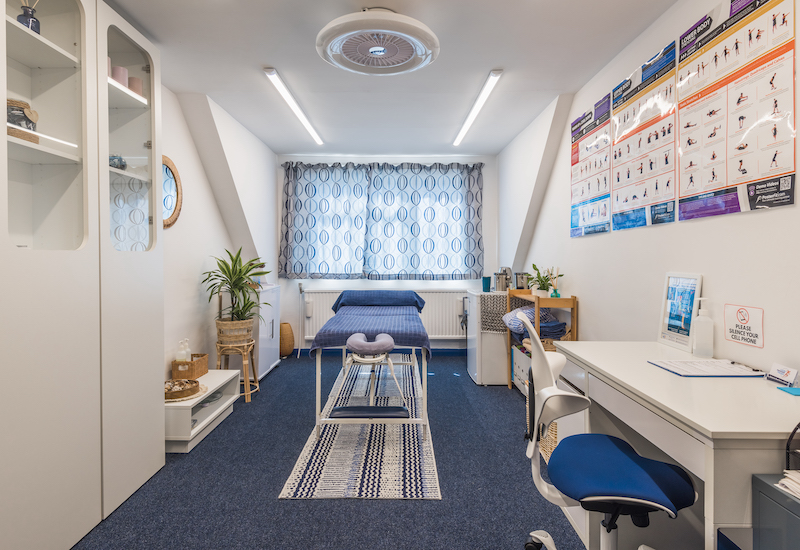
Experience the joy of moving freely again
Sports & Deep Tissue Massage to help you feel better, move better & be pain free
Book nowRelease muscle
tension and pain
Improve your range
of movement
Learn how to
prevent injuries
Whether you're a professional athlete or office-based, you'll be putting strain on your body.

When you’re constantly pushing your body to the limit, sports injuries are inevitable.
If left untreated, or not addressed at the root cause, they’ll likely return again and again, stopping you from performing at your best.
But it doesn't have to be that way. I can help!
Book now
Working in an office and spending countless hours sitting behind a desk can have a detrimental effect on your body.
Bad posture and repetitive movements can lead to neck, shoulder and back pain.
But it doesn't have to be that way. I can help!
Book nowJust a few ways sports massage & deep tissue massage in Abbots Langley can improve your life
- Reduce tension and stress
- Improve circulation and cardio-vascular health
- Move more freely
- Sleep better and increase energy levels
- Lower blood pressure
- Reduce neck, shoulder and back pain
- Improve your posture and core strength
- Reduce the risk of injury
3 steps to moving freely again
1. Book a massage
Simply use our online system to find a date and time that works for you. We like to make everything easy for our clients and have appointments available Monday to Sunday.
2. Treat the issue
Whether you want a sports massage in Abbots Langley after a training session, or a series of deep tissue treatments in Abbots Langley to address an ongoing issue, we have a range of options to suit your needs.
3. Move freely again
You will soon be enjoying the freedom and confidence that comes with releasing tension and stress in your body. Our mission is to help you live a pain free life.
Helping people since 2010
I have been seeing Lucas for a few years now and he is amazing. I have had a few different massages and he always knows exactly what I need. I have had a few different massages and he always knows exactly what I need. I have had a few different massages and he always knows exactly what I need.
Lucas is exceptional at what he does. Look no further. You owe it to yourself to go and see him whether or not you have any aches and pains! If there was such a thing as X-ray vision…that’s what he has. He is able to identify and locate problem areas with great precision. Deep tissue massage in Watford at its best. I am a picky customer and not easy to please! He’s very good indeed.
Lucas has treated me with a number of sports injuries and has help me to rehabilitate and strengthen my body. He gave me more confidence and better performance when participating in sports. I have now been visiting Lucas on a regular basis for over 6 months and Lucas is extremely professional and knowledgeable and is always available to provide sports injury and sports massage care. Very Highly recommended.
This is an excellent service. Really easy to book online. Easily accessible and parking available. Lucas is very professional, helpful, attentive and customer-focused. The massage is excellent and is helping me stay injury-free as an athlete.
I had bad neck pain and had two sessions with Lucas, the results are amazing. I had to stop driving for a week as I couldn’t turn my head to the left side. After one session it improved and I could drive myself for the second session. Lucas has gibbon me stretching exercises as well. I would definitely recommend Lucas.
Was looking at various local massage places due to my back taking some punishment at work. Went with Lucas due to the high-quality reviews. Thus to say he did not disappoint. Very welcoming, good sense of humour and clearly knows his stuff. My back felt instantly better after the therapy. Definitely recommend.



Sports Massage & Deep Tissue Massage for the local areas of Watford, Abbots Langley, Kings Langley, St Albans and Hemel Hempstead.
Feel better. Move better. Be pain free

